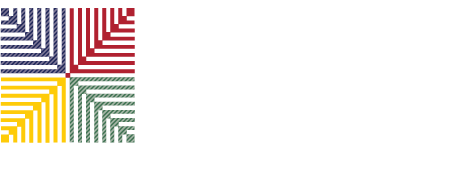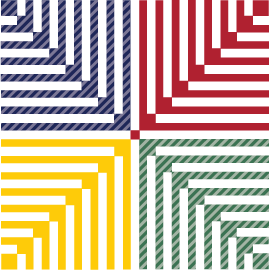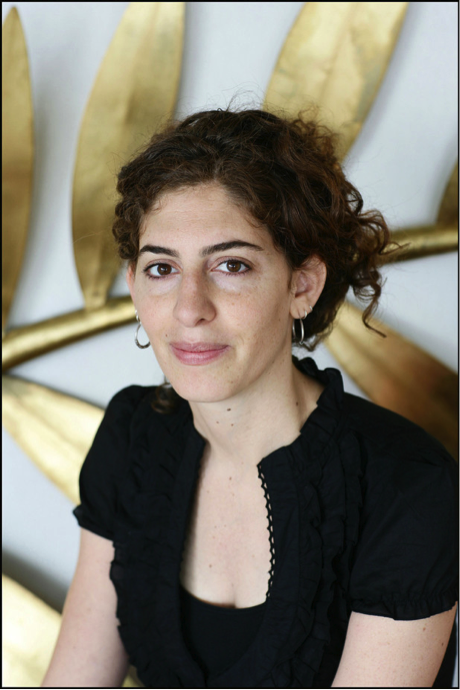With seven original directorial credits under her belt and several awards and nominations to boot (two Official Selections at the Cannes Film Festival, one in Venice and an Academy Award qualifier, to name a few), Palestinian independent filmmaker Annemarie Jacir is one to watch. is her second feature film and was screened at BPFF’s 7th annual film festival last October. We got the chance to chat with Jacir about the film and her process as a Palestinian artist and storyteller.
BPFF: This story — of the refugees expelled from Palestine in the aftermath of the 1967 war — is one that has not been told yet, or at all, in a feature film. Why did you examine the Palestinian experience of this particular time through the eyes of a young boy? Why was his and his mother’s story the one that needed to be told?
AJ: This story is just one of millions of stories about this time period, and I hope more get told. For me, 1967 was a tremendously important year for us as Palestinians. I grew up hearing about it all my life. Although that year was a great tragedy for my family, it was also a time of great hope in the world. Like the late 60’s everywhere, people were going through a kind of rebirth; an infectious sense of hope that they could change their own lives. Student movements, anti-colonial movements, civil rights… I wanted to tell a story about this important time, not to be nostalgic but rather because it is so relevant. I started writing the script at a time [when] I was in need of hope in my own life, and in what I saw going on around me and in my own generation.
I chose to focus on Tarek and his mother in this story because I like stories about regular people who are thrown into unusual circumstances. Tarek and his mother are exactly that, and because of a situation out of their control, they are thrown into a political condition they never asked for. And during this time period full of a spirit of resistance infused with great hope, I wanted to tell a personal story, that of a young mother trying to protect her son and a boy whose spirit has not been broken yet. They are also like anyone else in the world, where Tarek is looking for his own independence from his mother, not to be treated as a child by her. At the same time, the adult world cannot offer him any answers to his questions.


Director Annemarie Jacir
BPFF: Can you talk about the way you chose to represent the fadayeen? Was that one of the issues or people you’ve been wanting to tackle in your films?
AJ: The film sees the world from Tarek’s point of view. It’s a romantic vision, not a documentary. It’s also very much about feelings: a mother’s obsession to protect her child in the face of war, and the moment in a boy’s life between childhood and manhood [while] finding his own personal independence. For the fadayeen, they are of course seen through Tarek’s point of view. He doesn’t really understand what they are doing but he knows the core issue, [that] they are all trying to get home, like him. At the same time, I wanted to have the “hints” in the film that things are not as idealized as they seem. To remain true to Tarek’s point of view, yet to also have these hints sprinkled throughout the film — we understand [that] there are other issues at play amongst the fadayeen; egos, discussions about religion and secularism, disagreements. I wanted [the film] to have the feeling that this group would not remain entirely cohesive.


Saleh Bakri (right) co-stars as one of the fadayeen.
BPFF: Palestine is usually feminized across most discourses… in literature, nationalist rhetoric, etc. Does that, to your knowledge, shape the stories you bring to life? With regards to WISY, I thought it was really interesting that Tarek left his father behind, rather than his mother. Palestine seemed less feminized as a result; but Tarek’s mother was the key figure from beginning to end. Can you comment on that at all?
AJ: For me, Palestine is neither masculine nor feminine. It just is what it is: our homeland. I did, however, want to address gender in the film in that at this time period women were very active in the armed struggle. Ghaydaa’s own change comes during the film when she leaves the refugee camp, where she is a struggling single mother who has learned to be protective and closed in order to keep the only thing she has left, [her son]. And then she finds herself at the training camp where men and women mixed more freely and she is not judged, nor is her son. In many ways the story is a coming of age not for Tarek but rather for Ghaydaa.


Ruba Blal as Ghaydaa
BPFF: How did you find your cast? What was it like working with Mahmoud (Tarek) and the rest of the cast to flesh out this story?
AJ: We visited community centers, schools, refugee camps, and theaters. We saw about 200 boys until we found Mahmoud (Tarek) in Irbid Refugee camp in the North of Jordan. I learned how little I know about boys that age! Tarek is a character so free, curious and open to the world. It was depressing to see that most boys that age have already become self-conscious, closed, and protective. Mahmoud was different.
The other actors are a mix of non-professional actors and more established ones. For the ones who played the fighters, I made them go through military training. It was intense. At the same time I was very easy on them because to be true, these men and women were not in an organized army and didn’t have real training. They were young people from the refugee camps, volunteers, who chose this path to liberation. I also asked the cast to sleep in Dibeen forest; to listen to the sounds of the night, to develop relationships with each other and with nature, to become part of the landscape. In fact, I never showed them the script but rather worked on who they were and how they got there rather than the story itself.
BPFF: What were the biggest challenges you had while shooting? The highest points?
AJ: It was absolutely exhausting and exhilarating at the same time. The challenges included raising the financing, which took two years. We did that entirely from the Arab community and all the producers of the film are Palestinian, so that was a huge achievement for us. At the same time, we only had half the budget we needed so a lot of compromises had to be made. Shooting in Jordan was not always easy, especially with a politically “sensitive” film. The highest points? That we did it. That I had a fantastic team and cast and the film became so much bigger than us.


Mahmoud Asfa as Tarek
BPFF: As a prominent Palestinian filmmaker, how do you see the world’s response changing towards the Palestinian narrative? Are our stories being more accepted, sought after, or visible? Does the gradual embracing of the Palestinian narrative though film offer some hope that the situation on the ground does not?
AJ: It’s an interesting question. I think Palestinian cinema had a brief moment where it was very “fashionable” about six years ago, in the same way that all cinemas all over the world have this moment. It comes and it goes. There are certainly now more filmmakers working than ever before, and that’s always a good thing. But I don’t know much in terms of the world’s response. I’m not really a person who has much of an understanding of that. I do know that with digital cinema, with new technologies, more and more Palestinians can make films and have access to resources – and that is what is important.
BPFF: We’re all curious about your next film project?
AJ: I’m working on several projects. I wear a lot of hats. I’m working as an editor on a beautiful film by a young filmmaker, I’m working as a screenwriter on two projects for other people, and I’m working on my own next film. It’s still much too early to talk about yet.
BPFF: What is a story about Palestine that is screaming to be told, but hasn’t yet?
AJ: There are at least seven million screaming to be told.
The of WHEN I SAW YOU at the MFA in Boston will be Friday, April 25, at 7:30pm. Tickets .
By Alia Gilbert
{images via |}


